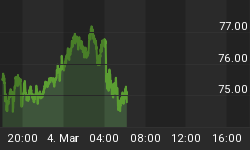Did you know that warrants have been in existence for many decades but very few investors know about them? Why? Unfortunately, very few of the professional newsletter writers and analysts understand them so they do not write about them. Are warrants that difficult to understand? Of course not; it's just that one needs to take some time to learn and understand this incredible investment vehicle.
Have you ever participated in a private placement of shares in your favorite mining company? If you, so probably received some warrants in this private placement and a good chance you did not even understand what you received.
To put this discussion in perspective, I would like to offer a quote fromthe past,
"...Common stock warrants turn in the most spectacular performance of any group of securities....the speculative potentialities of common stock warrants are enormous....
With potential profits and potential losses so great it is a source of wonder that so little understanding of the nature of common stock warrants exists not only among the investing 'public', who might be forgiven this sin, but even among the many 'professionals' of the business upon whom the 'public' depends for information and guidance."
By Sidney Fried, 'The Speculative Merits of Common Stock Warrants', 1949.
Did you get that? 1949. As we stated in the above opening paragraph, the public and professionals of today are, for the most part, not aware of the enormous profit potential of warrants and thus absolutely nothing has changed sinceSidney Fried's comments in 1949.
In the 1960's and 1970's Sidney Fried had a service called, 'The RHM Warrant Survey' to which many investors subscribed and which was available only in hard copy. To the best of our knowledge, this service stopped in the late '70's or early 80's and very little information has been available since to investors,until recently.
So let us give you a brief introduction to warrants.
A warrant is a security (like an option) giving the holder the right, but not the obligation, to purchase the underlying stock at a specific price, within a specified time period. Sounds very much like a call option or LEAP, doesn'tit? Very much so.
Actually warrants are issued by a company usually in connection with a private placement or a financing arrangement and many of the warrants issued will remainprivately held and will never trade in the open marketplace.
Fortunately, there are many warrants that trade on the Toronto Exchange and a few in the United States on the NYSE and the AMEX and many others are traded in the U.S. OTC market with assigned symbols. As an individual investor, your objective, in our opinion, should be to trade the warrant, without an intentionto exercise the warrant.
Currently there are many warrants trading with expiration dates out to the year 2012 (one out to 2017) and though warrants expiring within, say, 2 years, may possess great upside leverage and potential for gains, they also pose a greater risk. Therefore, we personally suggest that investors focus their attention on those warrants which have a remaining life of at least 2 years before theexpiration.
So, why the interest in warrants? The owner of the warrant receives none of the benefits of ownership of the common stock of a company. He cannot vote, and he does not receive any cash dividends. Therefore, why would an investor want to buy an option (warrant) to buy something instead of buying the thingitself?
The essence of the answer is that the anticipated gain on the warrant must be greater than the anticipated gain on the common stock. Leverage, or at least potential leverage, is the prime reason an investor would be interested in warrants. This more rapid growth in the value of the warrant relative to the common stock is called leverage. Without this possibly of such leverage theinvestor would buy the common stock.
As with any investment you must decide how much of your portfolio to allocate to different sectors, different shares, ETF's, mutual funds, goldbullion, etc.
Even though we personally view 'long-term warrants' as investments (as opposed to speculation), we find an allocation of 10% to 20% maximum of your portfolio as a reasonable allocation of your total dollars to this investmentvehicle.
To summarize, an investor may wish to purchase a warrant which is the option (the right) to purchase the common stock of a company. He may prefer to purchase the warrant instead of the common stock because the warrant offers more potential gain, that is, the warrant offers the investor leverage. Using a portfolio allocation of 10% - 20% and buying long-term warrants on some of your favorite mining shares, you are now in the position to capture some incredible potentialgains in this bull market in the natural resource and commodity sector.
For those investors seeking more knowledge on warrants we invite you to visit our Learning Center at Precious Metals Warrants. We provide you much more informationand examples to enhance your learning experience.
You may also signup for our free weekly email, The Warrant Report.
And for those readers in the San Francisco area, we will be providing a master workshop at the Hard Assets Investment Conference (November 18th & 19th). Our workshop is on the 19th at 7:30 - 8:00am. Please check the conference schedule for more details.















